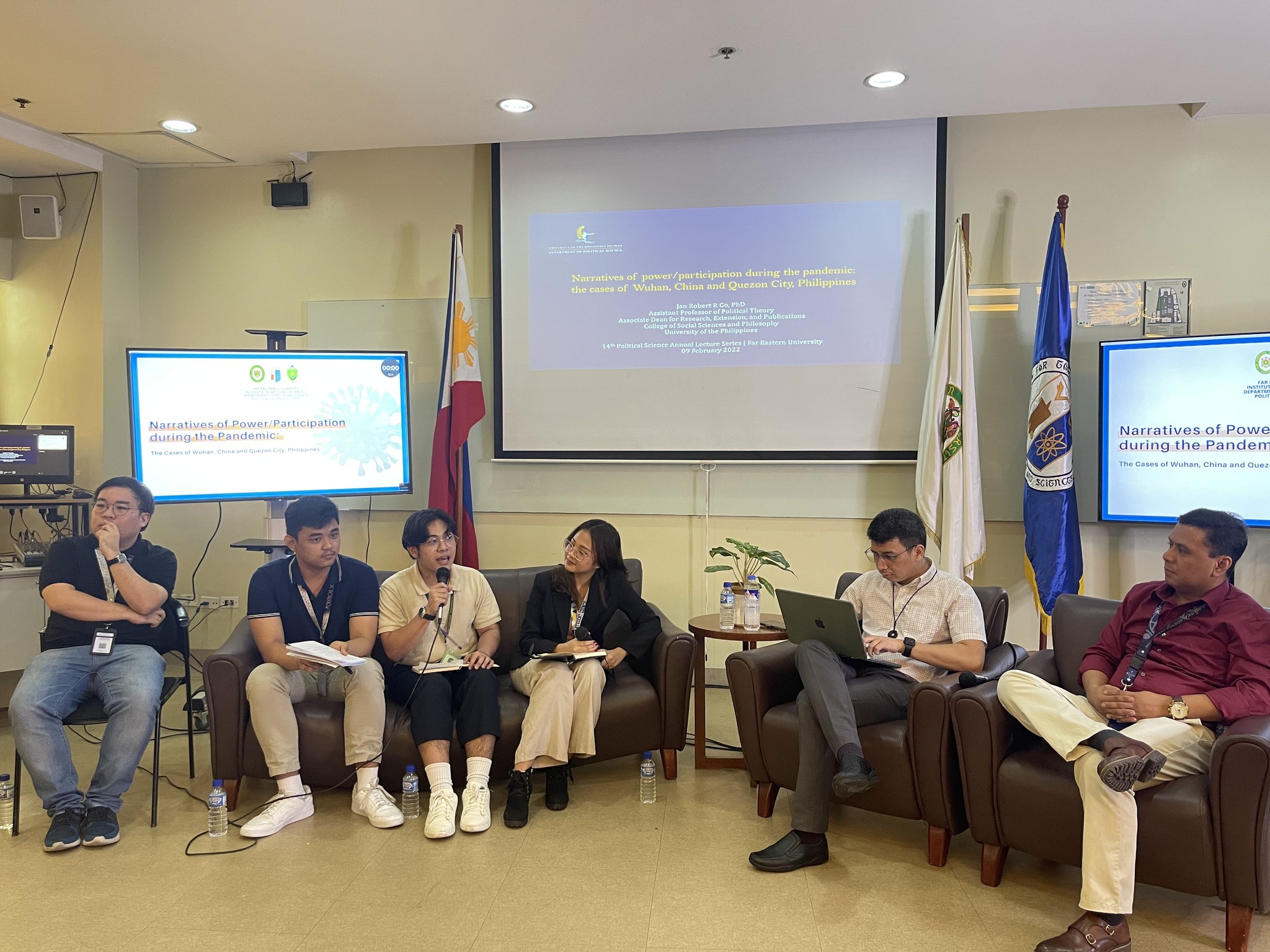This program utilizes an outcomes-based approach to meet CHED standards and requirements, with varied teaching-learning strategies, modes of delivery, and assessments.
Program Curriculum
The first two years of the Political Science program focuses mostly on General Education (GE) courses designed to hone learners’ core competencies such as critical and analytic thinking, oral and written communication skills, and independent learning.
Using a liberal approach to education, GE courses such as Scholarly Inquiry and Purposive Communication prepare learners for advanced professional courses and research work required later in the curriculum.
The major and elective courses of the program are handled by competent and experienced faculty members with relevant master’s degrees, and some with doctoral degrees, aligned to its different courses.
The program also offers special courses on the Philippine Constitution, International Law and Introduction to Law to prepare students for the Juris Doctor or law degree. These courses are handled by experienced and competent lawyers.
Learners acquire the experience intended to provide the opportunity to apply the theories and principles to the workplace by rendering 200 hours (6 units) under the program’s Practicum with the government and non-government institutions.
Well-being and work-life balance is also a key feature of the BA PS curriculum. Throughout their stay in the university, learners are encouraged to plan their own Wellness and Recreation Program (WRP), a university-wide course which intends to develop their physiological and psycho-social fitness as well as encourage social responsibility and community involvement.
Teaching-Learning Approaches
To ensure a solid foundation across all facets of the discipline, the program offers a comprehensive curriculum covering Philippine national and local government units, Philippine relations with neighboring Asian countries, European, and American regions. Methodologically, the program offers courses on political theories, political analysis, research, and on the job training to its students.
The program does not only prepare students for careers in the government, and numerous domestic and international organizations, it also equips them with the strong theoretical, empirical, and methodological competencies necessary for pursuing higher studies in the various fields of political science and its allied courses such as Philippine Studies, International Studies, International Relations, and Comparative Politics, among others.
The BA Political Science program has been carefully crafted to empower our students into becoming independent, lifelong learners as future political science professionals, educators and civil servants. Thus, this program utilizes several teaching-learning approaches focused on learners’ needs and capabilities, such as:
- Student-centered learning. The program adheres with the University’s educational philosophy and learning paradigm which emphasizes active and dynamic learning to develop the higher-order thinking skills of our students. These skills include critical and analytic thinking, which are crucial in understanding foundational theories as well as in appreciating the complexities of issues in politics and other related fields of social sciences. Under this approach, faculty are expected to design engaging classroom activities which encourage collaboration and independence among students.
- Didactic approach. BA Political Science utilizes a variety of lectures, discussions and case studies in developing theoretical and foundational knowledge in political science and other allied fields of humanities and social sciences.
- Interdisciplinary approach. The BAPS program recognizes that the field of political science intersects vastly with other fields of studies. As such, courses commonly utilize multidisciplinary lenses in analyzing concepts and issues in the field. Also, the liberal GE courses complement the professional BAPS courses with additional inputs in the humanities and social sciences.
- Blended learning. The program recognizes the changing technological landscape which our current generation of learners must navigate. Geared towards ubiquitous and independent learning, some courses are delivered through a mix of online virtual classrooms, self-study modules and face-to-face sessions. The University utilizes Canvas, a world-class learning management system to facilitate this mode of delivery.
- Research-based approach. Aside from didactic and demonstrative approaches, the program utilizes case studies and research-based materials to ensure that learners are provided with updated knowledge and practices in the field. Moreover, the program encourages learners to develop and pursue their research interests.
Assessment and Research
Varied assessments and assessment-related tasks are deployed throughout the course of the program.
Assessments are a combination of traditional pen-and-paper tests, practical examinations, research work and performance-based tasks. These include quizzes and summative tests, reports and presentations, theory-driven inquiry, community-based action research and problem-solving, simulations and models, cases studies, and project and problem-based learning. Apart from course-based assessments, research is also integrated into the curriculum such as the Quantitative and Qualitative Analysis of Data, Research Proposal, and Research Output courses.
Internship
Learners must complete the on the job training program, which constitutes 6 units of their coursework. The Practicum course is a 3rd-year summer program that provides the student skills necessary to associate political ideas and behavior obtained in the classroom to practical experience.


